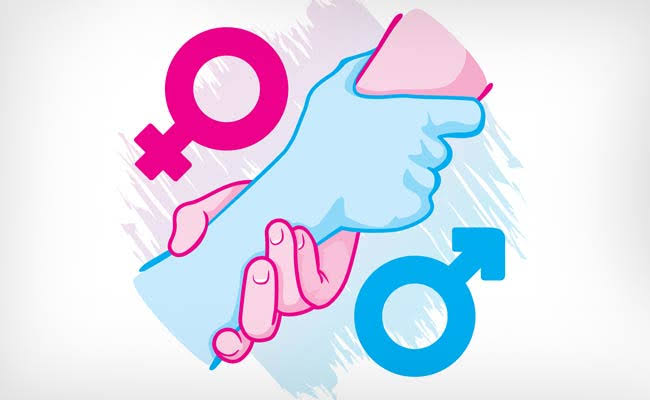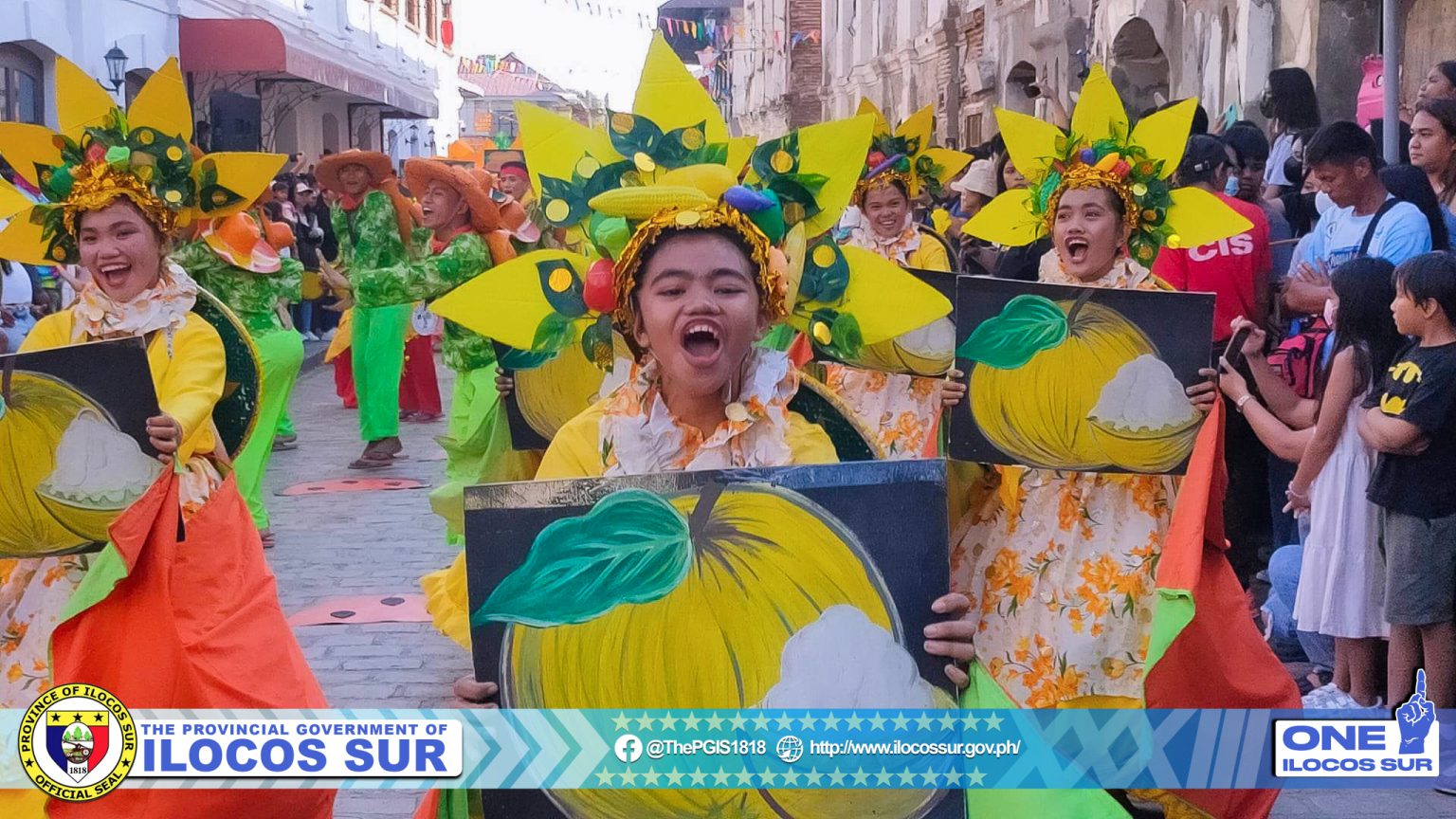Christianne Praise de Peralta
Sunday, March 30, 2025
Student Creativity on Display
123 Years of Ilocos Sur National High School: A Celebration
Ilocos Sur National High School just had its 123rd founding anniversary, and wow, what a day! It's seriously cool to think that our school has been around for that long. It makes me feel like I'm part of something really big and important.
Thursday, March 27, 2025
Embracing Challenges and Growth: My Fourth Quarter Journey
This quarter, I gained valuable knowledge about Microsoft FrontPage, a tool for creating and managing web pages without requiring extensive HTML knowledge. I learned about its various components, such as the title bar, menu bar, toolbars, and web page window, which help in designing and formatting websites efficiently. FrontPage’s WYSIWYG (What You See Is What You Get) environment made it easier to create and preview web pages without needing to code. Beyond this, I also improved my research, critical thinking, and problem-solving skills across different subjects, which helped me develop a deeper understanding of the topics covered this quarter.
One of the challenges I faced was understanding the technical aspects of FrontPage, especially how it integrates with HTML and how different elements function within a webpage. Additionally, time management was a struggle, as balancing different academic tasks alongside projects required careful planning. There were also moments of frustration when certain web page elements did not display as expected, making it difficult to achieve my desired outcome.
To overcome these challenges, I took a hands-on approach by experimenting with FrontPage features and watching tutorials to understand its tools better. I also sought help from my teacher and classmates whenever I encountered difficulties. For time management, I created a schedule to allocate enough time for each subject, ensuring I could complete my tasks without feeling overwhelmed. By staying patient and persistent, I was able to improve my skills and successfully complete my projects.
Moving forward, I will continue to enhance my knowledge of web development and explore other website design tools that can help me create more advanced and visually appealing web pages. I will also work on improving my time management skills by setting clearer goals and deadlines. Lastly, I will remain open to learning new skills and embracing challenges, knowing that every difficulty is an opportunity for growth and improvement.
References:
InformIT. (n.d.). FrontPage: A brief introduction. InformIT. https://www.informit.com/articles/article.aspx?p=131076
15 Years to Go: My Journey Towards Becoming a Doctor
It’s amazing to think about where I could be in 15 years. Right now, I’m 15 years old, a grade 10 student, and I’m in a special science class, which is where my passion for medicine really started to grow. I dream of becoming a doctor, and even though I’m just getting started, I know that the journey ahead is going to be full of hard work, challenges, and exciting moments.
I imagine myself in 15 years, maybe working in a hospital, helping people feel better, and making a real difference in their lives. Being a doctor means much more than just knowing how to treat diseases—it’s about listening to people, understanding their needs, and showing compassion. I can picture myself working with patients, explaining their conditions, and helping them make decisions about their health.
Right now, I know I have to focus on my studies, especially in science subjects like biology and chemistry. These subjects are going to be the foundation of everything I need to learn. I also know I’ll have to push myself to keep improving, whether it’s through extra practice, gaining more knowledge, or finding ways to grow as a person.
It’s not always going to be easy. There will be moments when I feel tired or unsure about the future. But I believe that as long as I stay focused and keep my goal in mind, I’ll be able to overcome those obstacles. The road to becoming a doctor will take a lot of years of study and hard work, but I’m ready to take it step by step.
In 15 years, I hope to look back and see how all those small efforts in school and beyond have built up to something incredible. I’m excited for the future, for the people I’ll meet along the way, and for the chance to help others as a doctor. My dream is just beginning, but I can already feel how much I want to make it come true.
References:
Student Doctor Network. (n.d.). Student Doctor Network. https://www.studentdoctor.net/
Adobe Stock. (n.d.). Doctor cartoon images. Adobe Stock. https://stock.adobe.com/ph/search/images?k=doctor+cartoon
Building a Fairer World: How WE Can Achieve Gender Equality and Inclusivity
When we talk about “WE for Gender Equality and an Inclusive Society,” it’s not just about supporting one group or cause—it’s about all of us coming together to create a fairer world. Gender equality means that everyone, regardless of whether they are male, female, or non-binary, should have the same rights, opportunities, and respect. But achieving this is not something that happens overnight. It requires all of us—men, women, and people of all identities—to take action and stand up for fairness.
In an inclusive society, everyone is accepted for who they are, without feeling excluded because of their gender, race, or background. We live in a world where diversity should be celebrated, not feared or rejected. Whether it’s in the workplace, at home, or in our communities, we can all contribute to making spaces more welcoming and supportive for everyone.
It's not just about policies or laws—it’s about everyday actions. When we treat each other with kindness, respect, and understanding, we help build a world where everyone feels valued. Simple things, like speaking out when we see injustice, supporting women and men in leadership roles, and challenging stereotypes, all go a long way.
So, let’s remember that gender equality and an inclusive society aren’t just goals for some—they’re goals for all of us. Together, “WE” can make a real difference by supporting one another, embracing diversity, and working toward a future where everyone has the same opportunities to thrive.
References:
Shafaa, R. (2022, March 22). Gender equality is a human right. Voices of Youth. https://www.voicesofyouth.org/blog/gender-equality-human-right
Harrison, L. (2023, July 27). Building a foundation of inclusivity and diversity for instructional designers. Reflection Software. https://www.reflectionsoftware.com/blog/inclusivity-and-diversity-for-instructional-designers
Monday, February 17, 2025
The Importance of Kannawidan Festival
The Kannawidan Festival is a special celebration in Ilocos Sur that honors the province’s history, culture, and local businesses. It helps preserve Ilocano traditions by showcasing folk dances, indigenous rituals, and traditional crafts, ensuring that younger generations learn about their heritage.
Aside from culture, the festival also boosts the local economy. Through trade fairs, farmers and artisans promote Ilocano products like Vigan longganisa, bagnet, sukang Iloco, and Abel Iloco fabric. The festival attracts tourists, helping businesses grow and creating jobs for locals.
Kannawidan also has religious and historical importance. It begins with a thanksgiving mass and reminds Ilocanos of their rich past and strong sense of identity.
Overall, Kannawidan is more than just a festival—it strengthens Ilocano pride, supports local businesses, and keeps traditions alive for future generations.
Reference :
Ilocos Sur Management Information System. (2023, February 12). The Ilocos Sur Kannawidan Festival 2023 street dance competition. Retrieved February 18, 2025, from https://mis.ilocossur.gov.ph/2023/02/12/the-ilocos-sur-kannawidan-festival-2023-street-dance-competition/
Saturday, February 15, 2025
The Heart of Valentine’s Day: A Celebration of Love and Appreciation
Valentine’s Day is a time to celebrate love and appreciation for the special people in our lives. While it is often associated with romance, it is also a day to express love for family, friends, and even ourselves. Beyond grand gestures and extravagant gifts, the heart of Valentine’s Day lies in genuine acts of kindness and affection.
The holiday traces its origins to Saint Valentine, a priest in ancient Rome. According to legend, Emperor Claudius II banned marriages for young men, believing that single soldiers were more dedicated to battle. Defying this decree, Saint Valentine secretly performed wedding ceremonies for couples in love. When his actions were discovered, he was arrested and later martyred in the 3rd century. His selflessness and dedication to love made him a symbol of devotion, compassion, and sacrifice.
Today, we celebrate Valentine’s Day as a reminder to cherish and appreciate the people who bring joy and meaning to our lives. It is not just about lavish gifts or fancy dates but about expressing love in meaningful ways. A heartfelt letter, a thoughtful gesture, or simply spending quality time together can speak volumes.
People express love in different ways—some give gifts like flowers and chocolates, while others prefer words of affirmation, acts of service, or warm embraces. What truly matters is that love is shown with sincerity and from the heart. While love should be celebrated every day, Valentine’s Day serves as a beautiful opportunity to make our appreciation extra special.
References :
Days of the Year. (2024, October 29). Valentine's Day. https://www.daysoftheyear.com/days/valentines-day/
MacNiven-Johnston, G. (2023, February 10). Who was St Valentine? – The story behind the holiday. Catholic Truth Society. https://www.ctsbooks.org/real-story-saint-valentine/
Student Creativity on Display
--------------------------------------------------------------------------------------------------------------- Our school recently held a...

-
The Kannawidan Festival is a special celebration in Ilocos Sur that honors the province’s history, culture, and local businesses. It helps p...
-
Valentine’s Day is a time to celebrate love and appreciation for the special people in our lives. While it is often associated with romance,...
-
Reflection on Learning HTML, HTML Tags As a student, learning about HTML, HTML tags, tables, and frames ...














